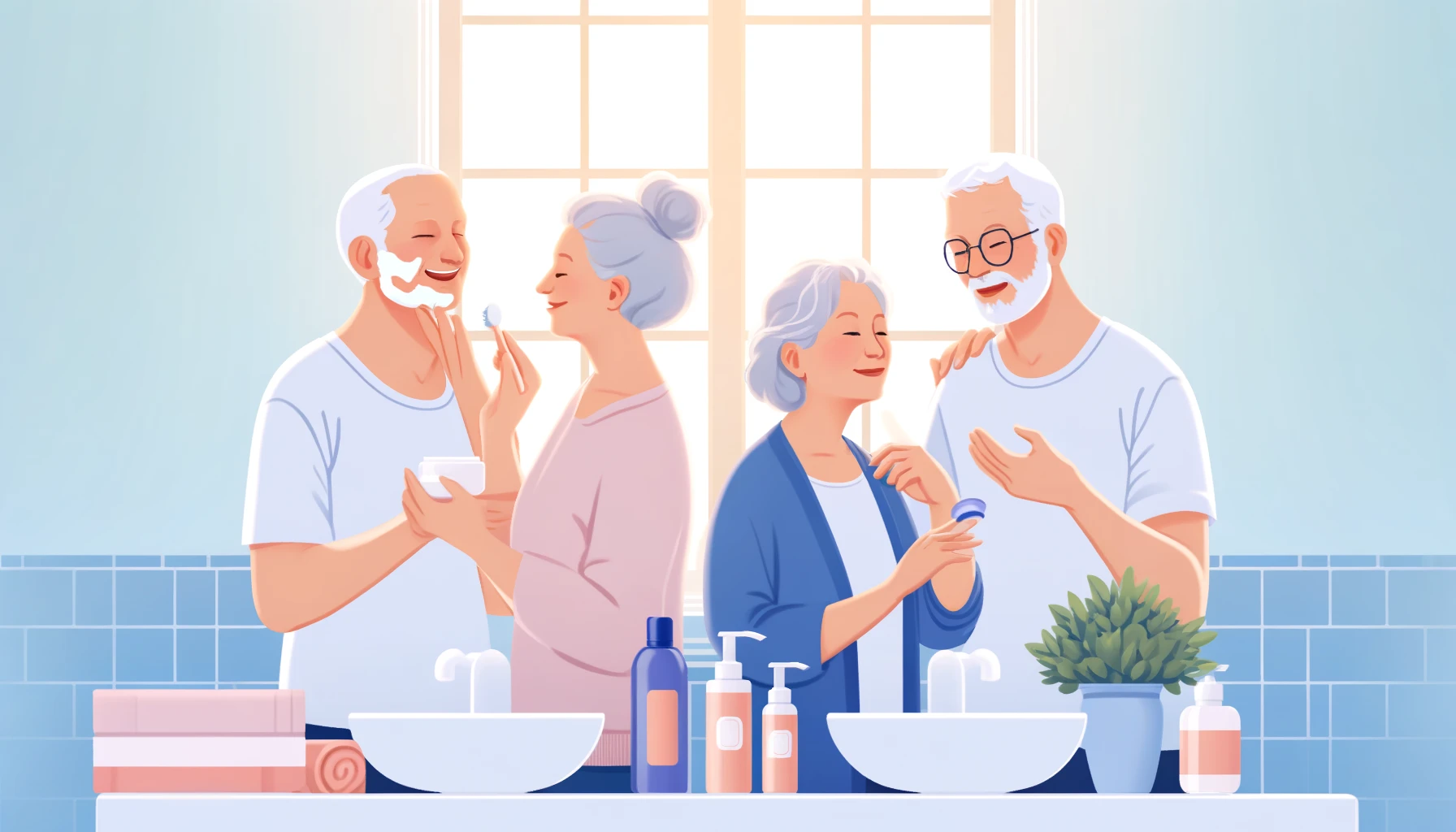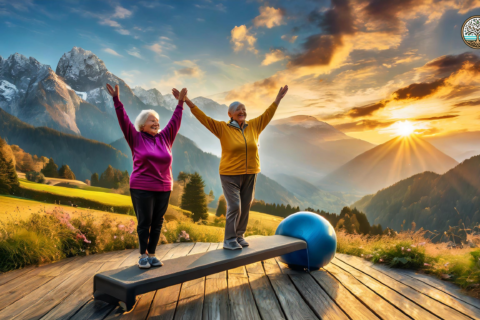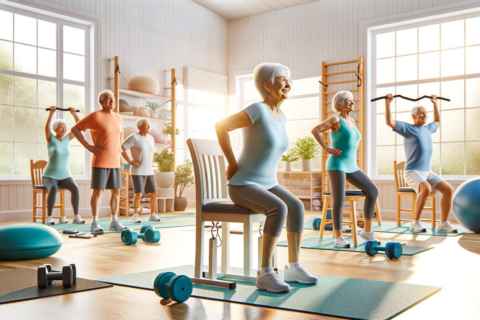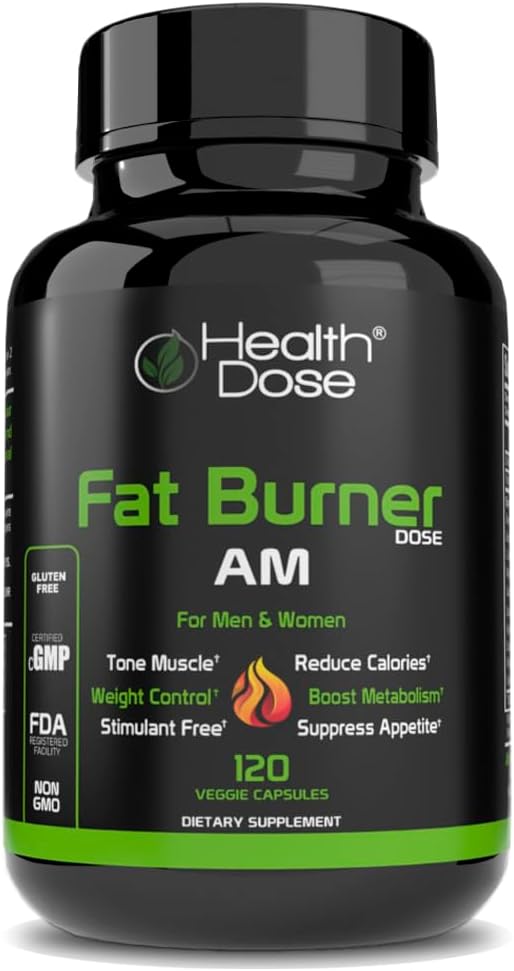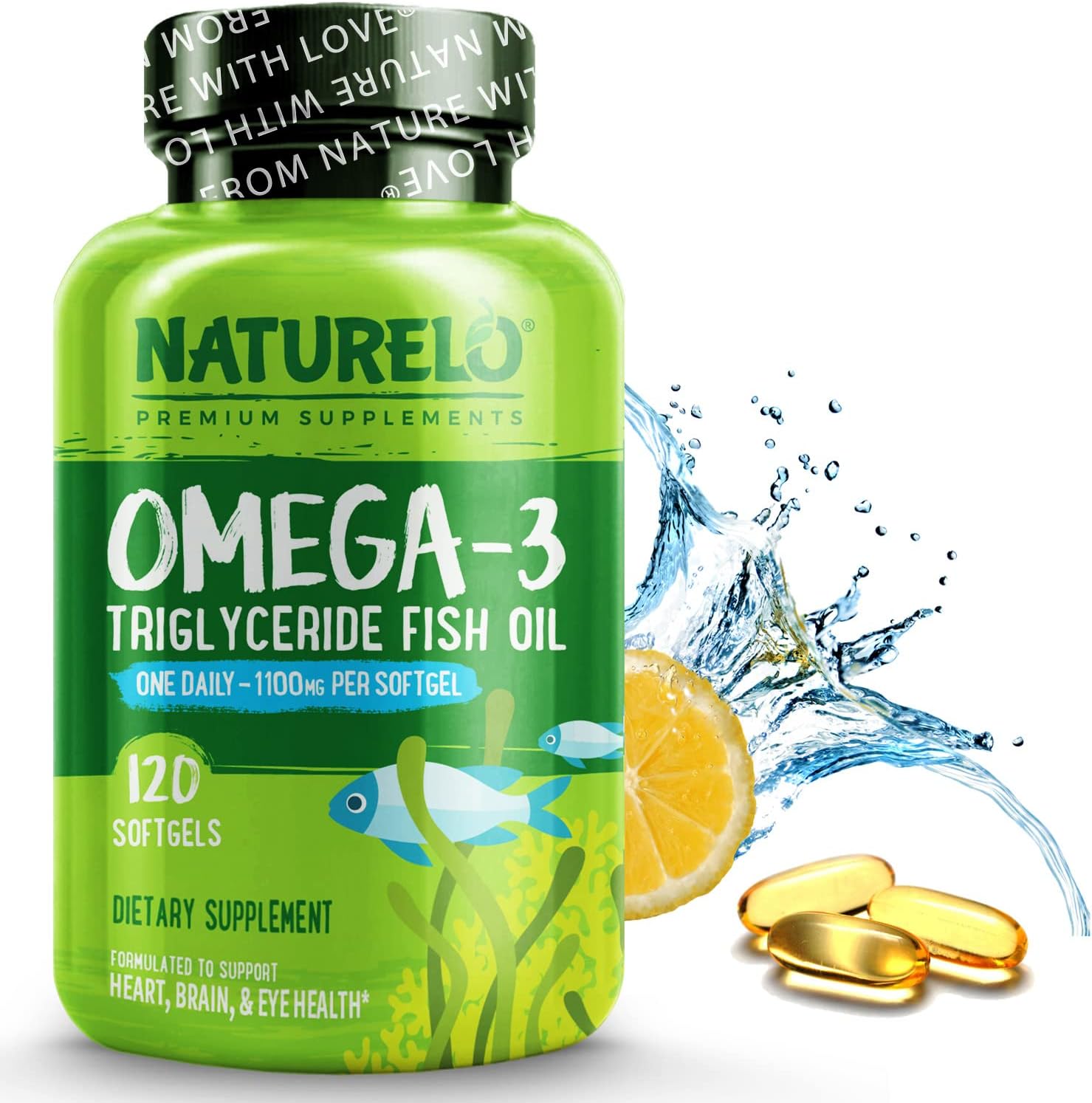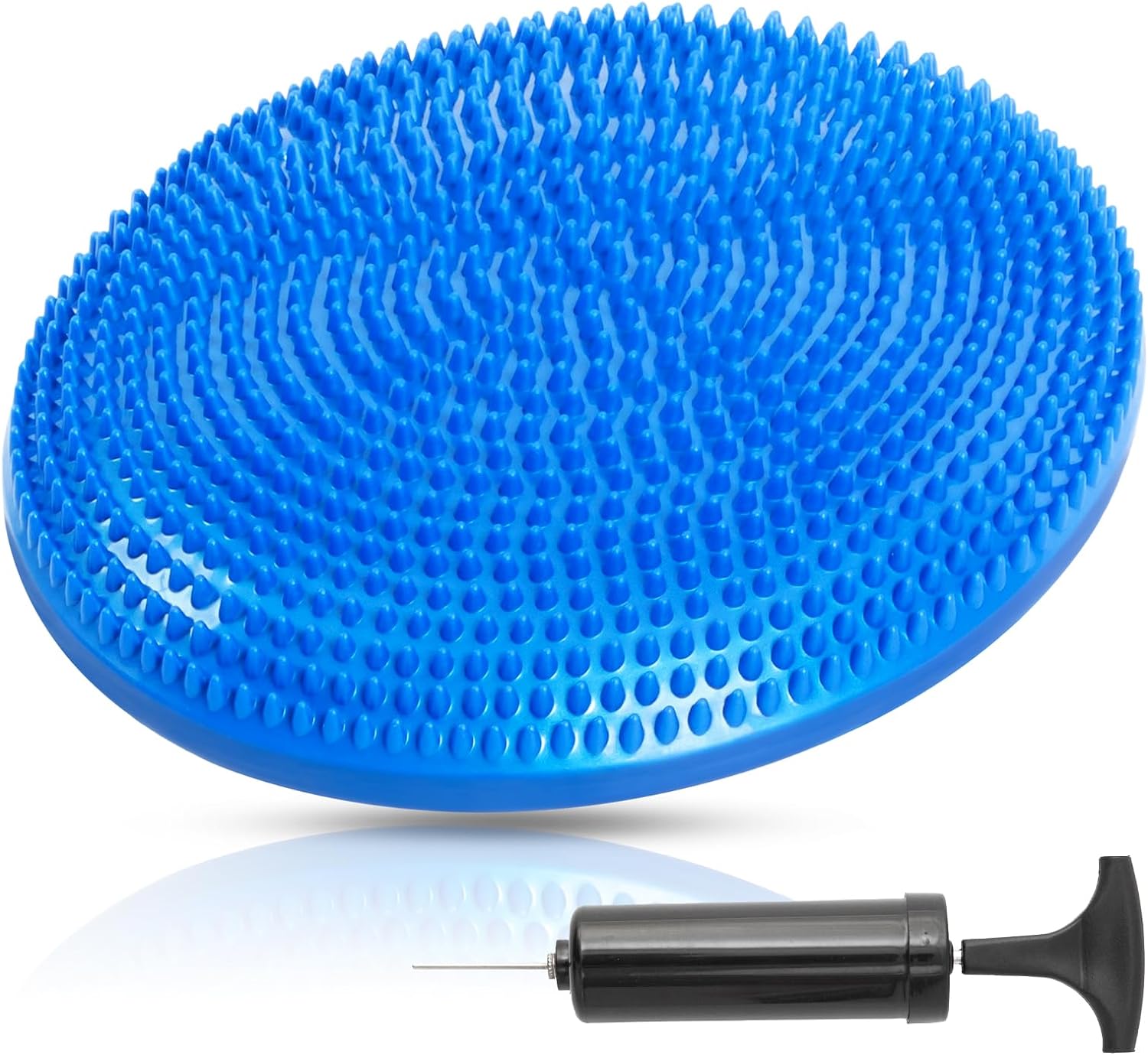Introduction
As we age, our skin undergoes significant changes that require adjustments to our skincare routines. For seniors, maintaining healthy skin is not just about looking good—it’s also about feeling good and staying healthy. This comprehensive guide will explore senior skin care routines that are specifically tailored to address the unique challenges faced by aging skin. From understanding the changes your skin goes through to implementing daily practices and choosing the right products, we’ve got you covered.
Understanding the Changes in Aging Skin
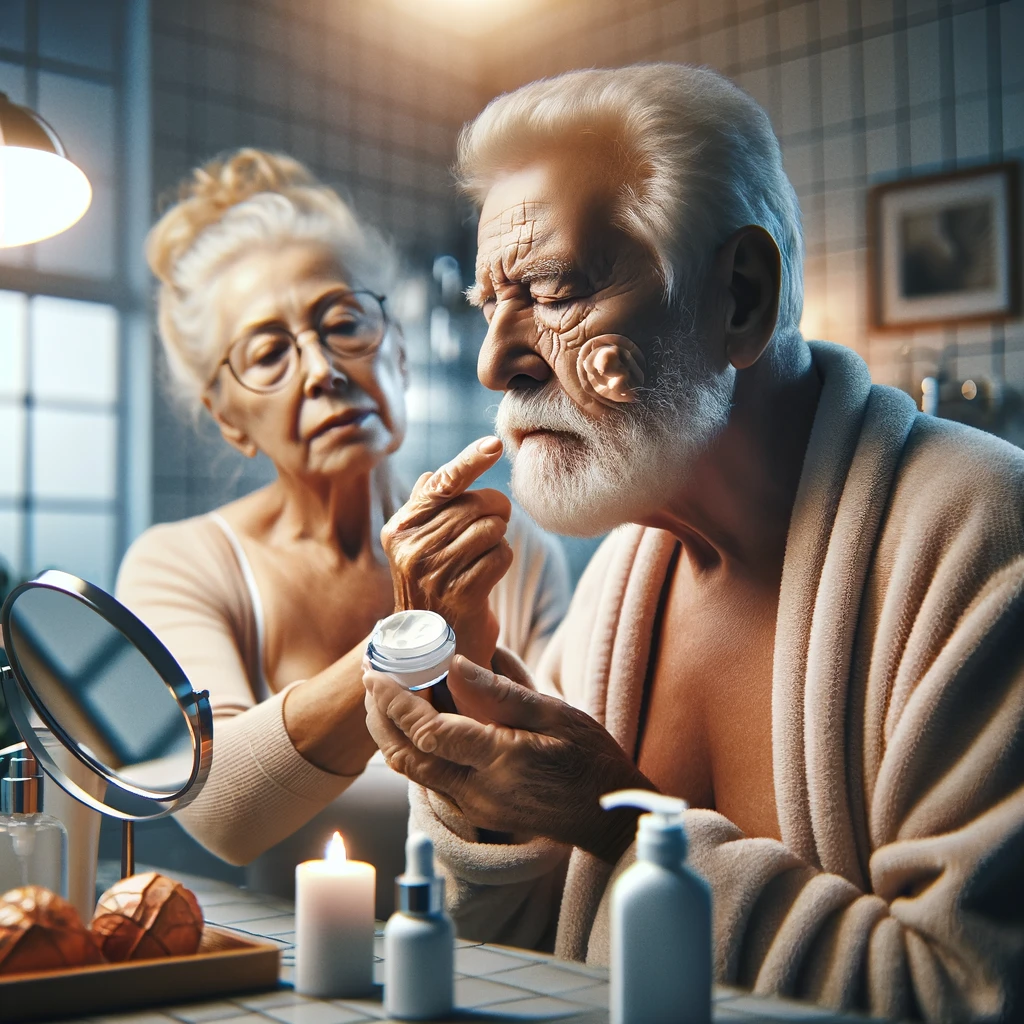
As individuals age, their skin undergoes a myriad of transformations that necessitate adjustments to care routines. The skin’s ability to retain moisture diminishes, resulting in dryness and a more pronounced appearance of fine lines and wrinkles. This is due to the decreased production of natural oils, reduced collagen levels, and a thinning of the epidermal layer. Additionally, years of exposure to the sun can lead to photoaging, characterized by sunspots, hyperpigmentation, and further loss of elasticity. Understanding these changes is crucial for seniors as it helps tailor effective skincare strategies that address specific concerns while nurturing and protecting the skin.
The Effects of Aging on Skin
As we enter our senior years, our skin naturally becomes drier, thinner, and less elastic. These changes are due to decreased production of natural oils, a reduction in collagen and elastin fibers, and diminished fat in the skin’s deeper layers. Sun exposure and environmental pollutants over the years can also contribute to skin damage and aging. Recognizing these changes is the first step in developing effective senior skin care routines.
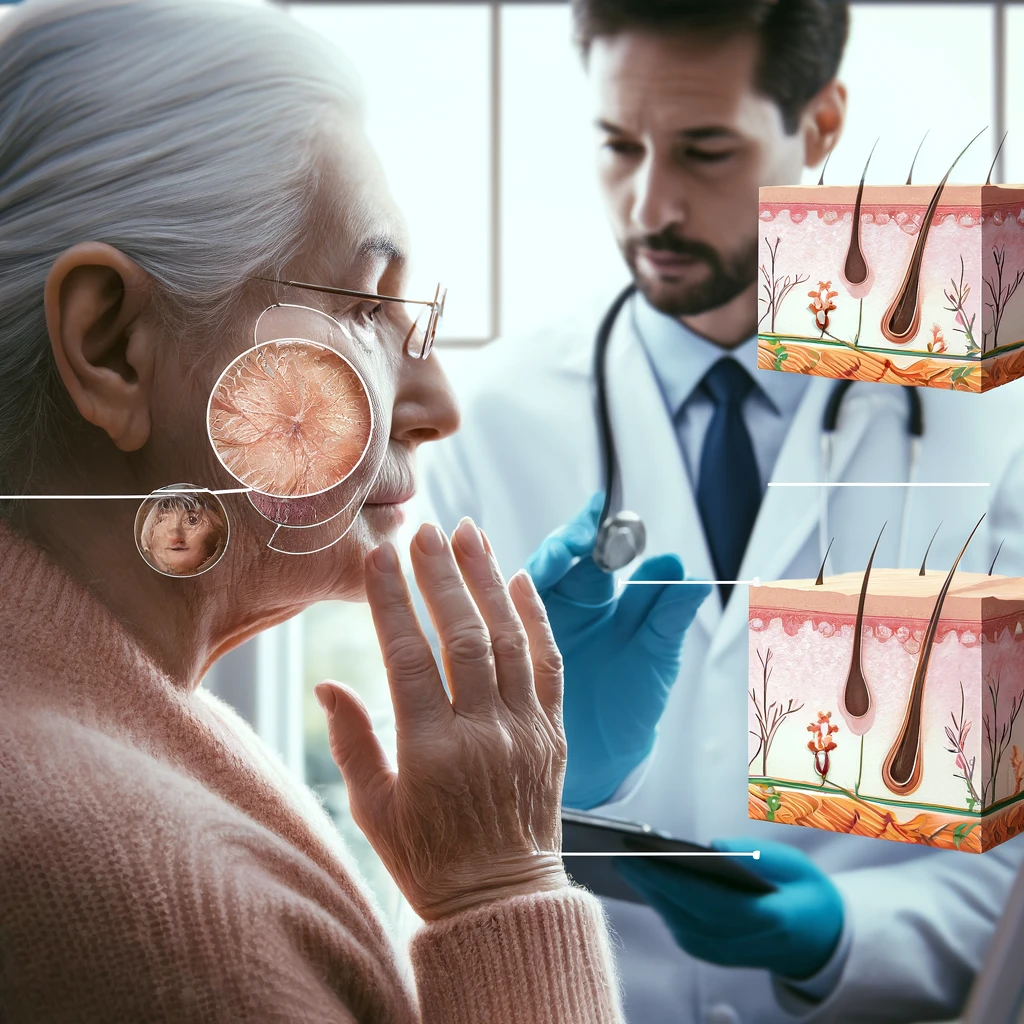
- Natural Changes: As we age, our skin becomes thinner, less elastic, and drier due to decreased collagen production and loss of fat in the subcutaneous layer.
- Environmental Impact: Long-term exposure to the sun and environmental pollutants accelerates these natural aging processes, leading to wrinkles, age spots, and increased dryness.
Why Tailored Skin Care is Essential for Seniors
Tailoring skincare routines to address the specific needs of aging skin is crucial. Effective senior skin care routines help manage dryness, improve elasticity, reduce age spots, and minimize the appearance of wrinkles and fine lines. More importantly, proper skin care in senior years can enhance overall skin health, aiding in barrier protection and reducing the risk of skin-related diseases.
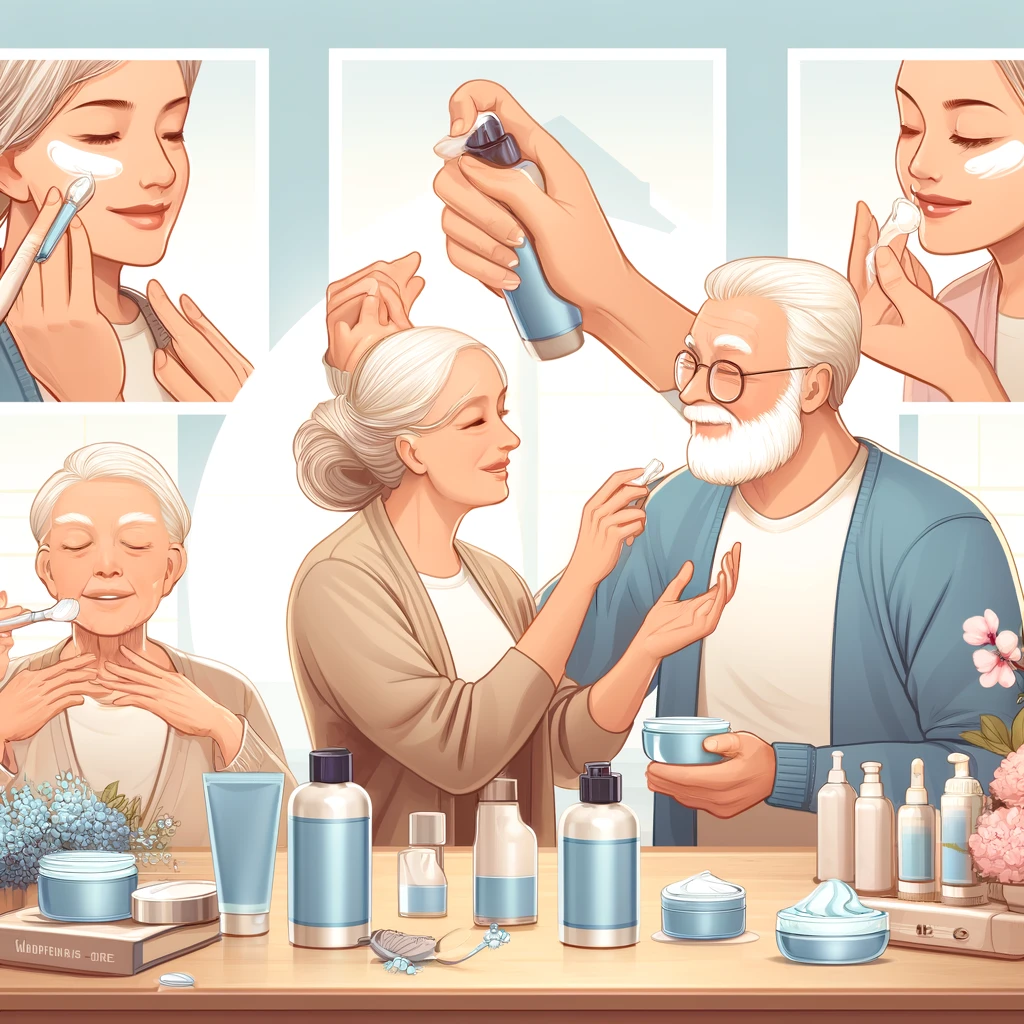
- Unique Skin Needs: Senior skin requires more hydration and protection due to its diminished ability to retain moisture and repair itself.
- Preventative Care: Tailored skin care routines help prevent and mitigate the effects of age-related skin conditions, ensuring that seniors maintain not only the appearance but also the health of their skin.
Building a Senior Skin Care Routine
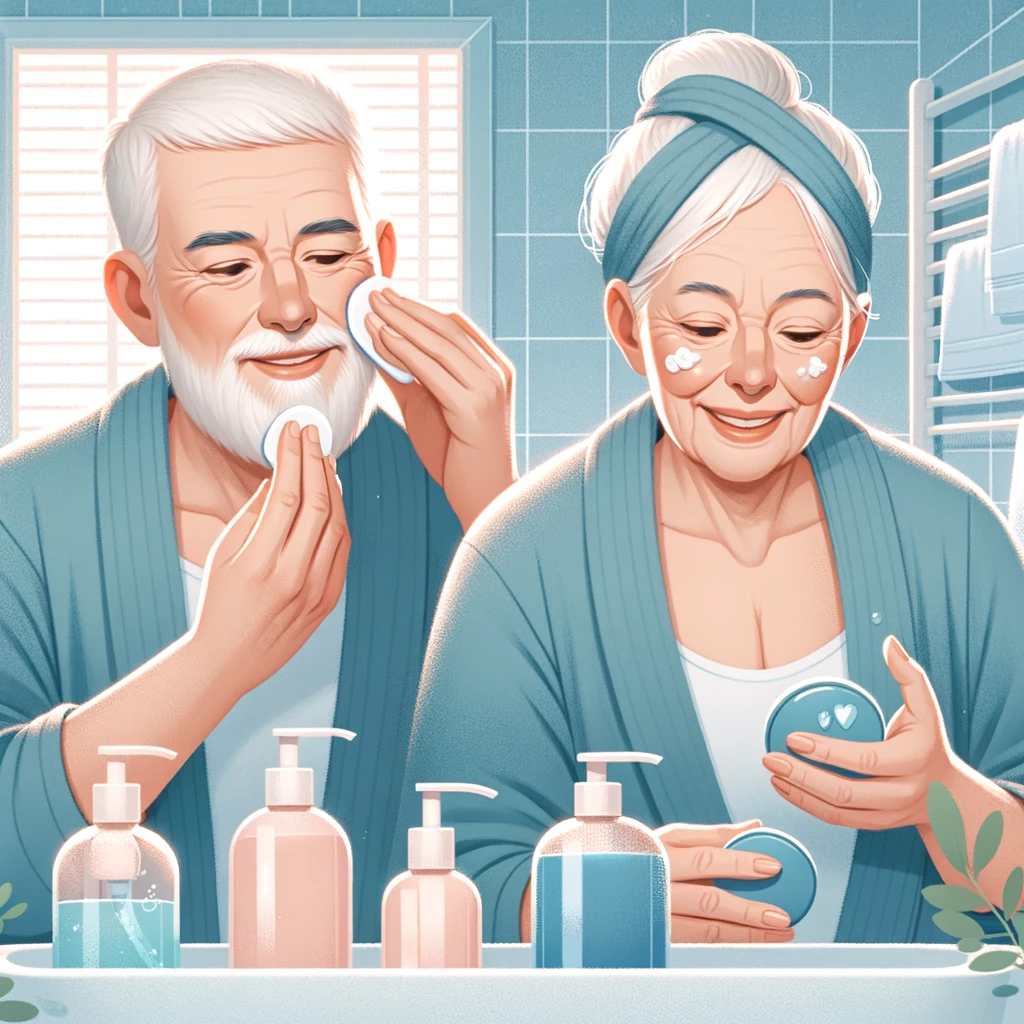
Creating a skin care routine for seniors should focus on simplicity and effectiveness, incorporating products that address the unique needs of mature skin. The regimen should begin with gentle cleansing to remove impurities without stripping the skin of its natural oils, followed by the application of a hydrating moisturizer to help combat dryness. Key products to include are those rich in ingredients like hyaluronic acid and ceramides, which help to restore hydration and reinforce the skin’s barrier. Additionally, a routine for seniors should always include sun protection to prevent further damage from UV rays. Regular use of these products will aid in maintaining the skin’s health and can prevent the development of more severe skin issues.
Daily Cleansing Practices
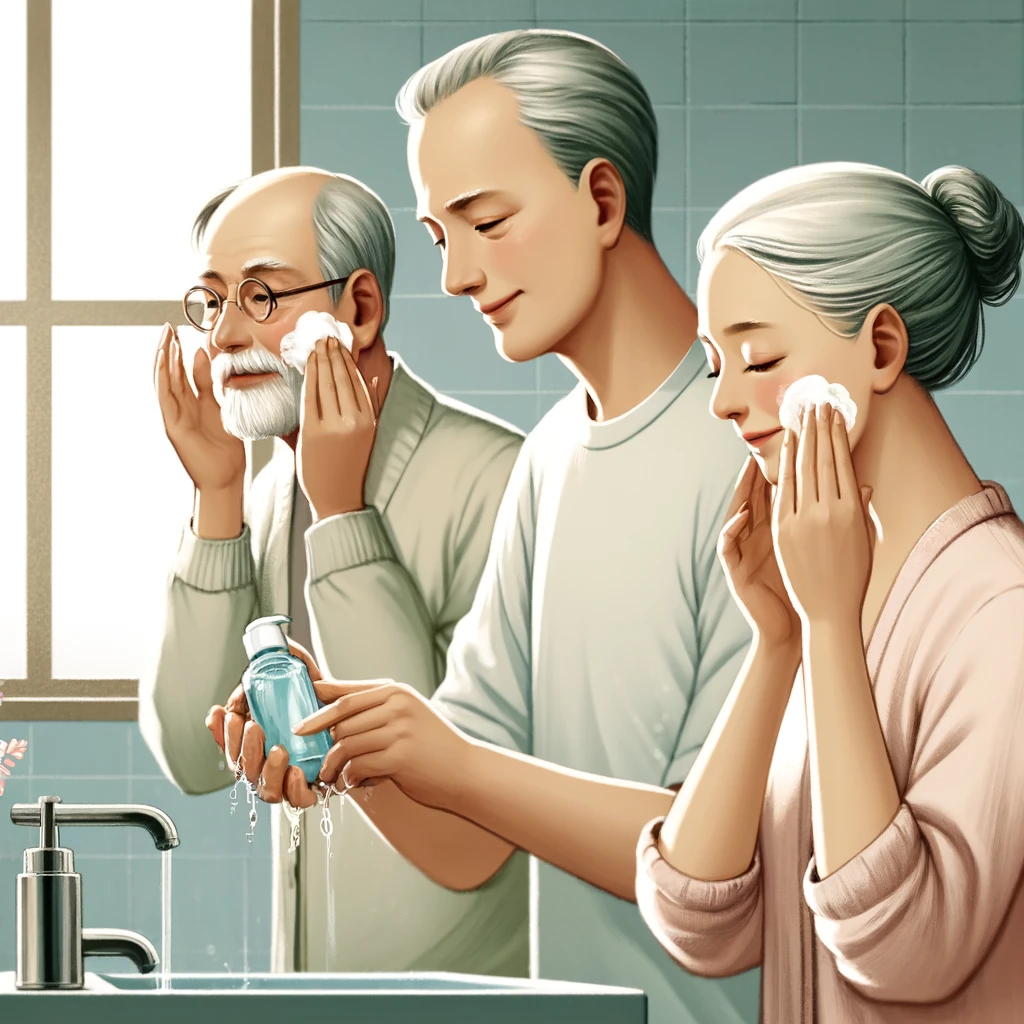
- Gentle Cleansing: For seniors, it’s crucial to use mild, hydrating cleansers that do not strip away natural oils, preserving the skin’s protective barrier.
- Lukewarm Water: Cleansing with lukewarm water prevents irritation and drying out, helping to maintain skin’s natural balance.
Gentle Cleansing
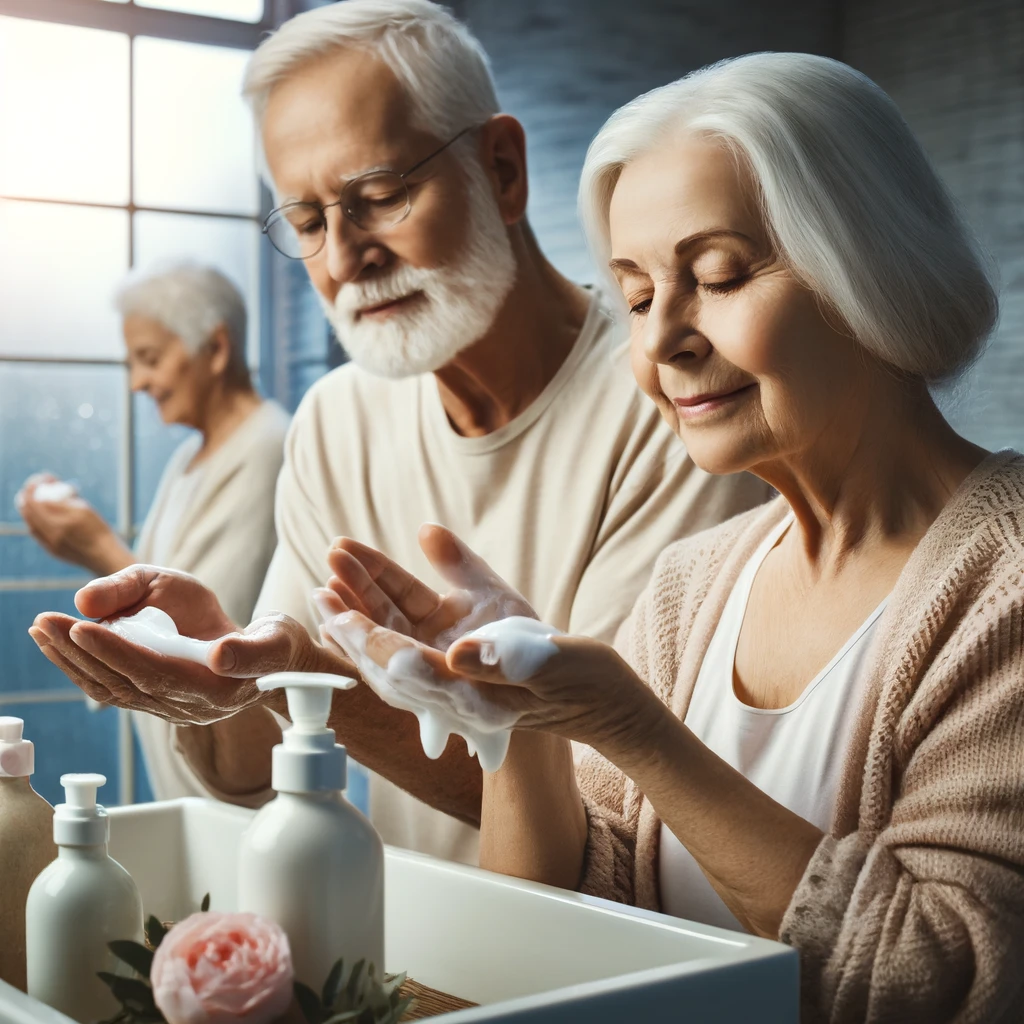
For seniors, gentle cleansing is key to maintaining skin health. Choose mild, hydrating cleansers that do not strip the skin of its natural oils. Cleansing should be done with lukewarm water and without excessive rubbing, which can irritate aging skin.
Hydration and Moisturizing
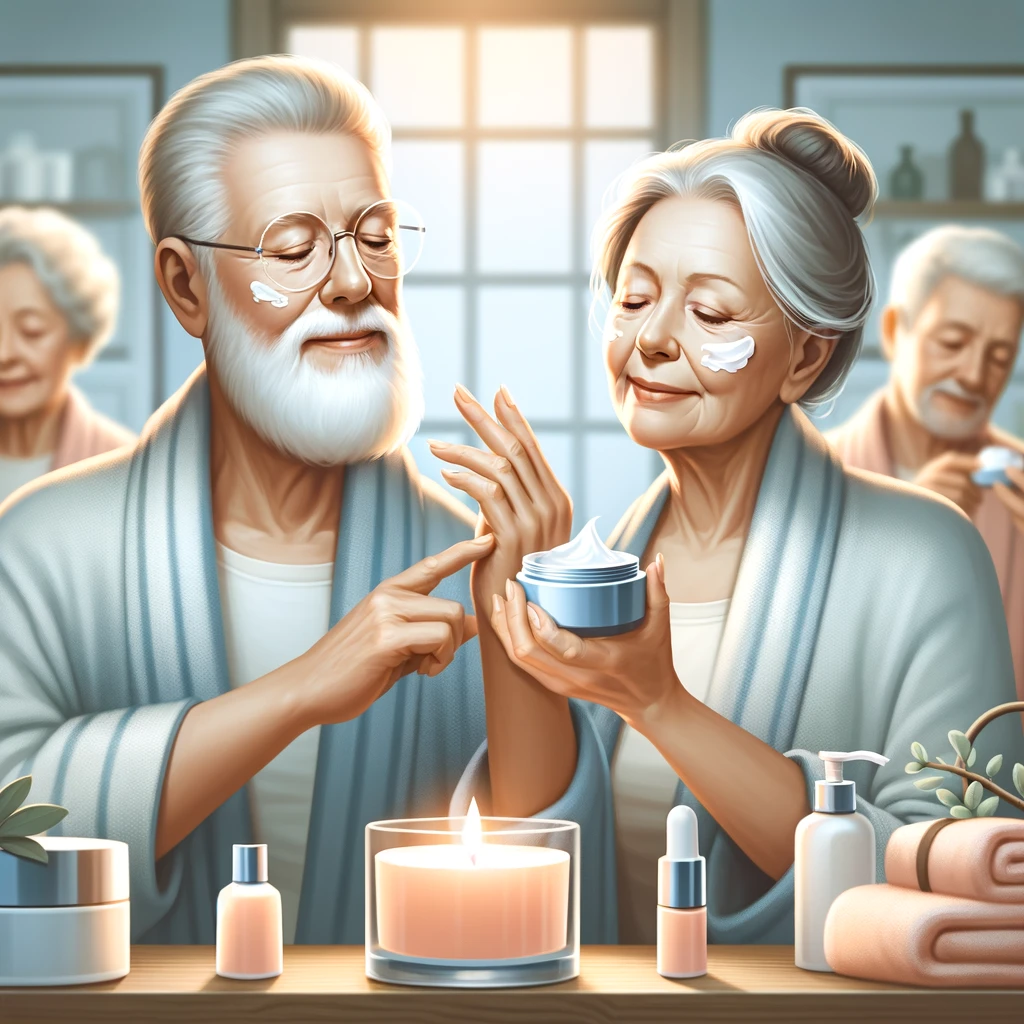
Keeping Skin Hydrated
Moisturizing is one of the most crucial steps in senior skin care routines. As skin dries out more easily in later years, using a high-quality moisturizer can help lock in moisture and maintain skin’s elasticity. Opt for creams with hyaluronic acid, glycerin, and ceramides, which are especially good for hydrating and repairing the skin’s barrier.
Sun Protection
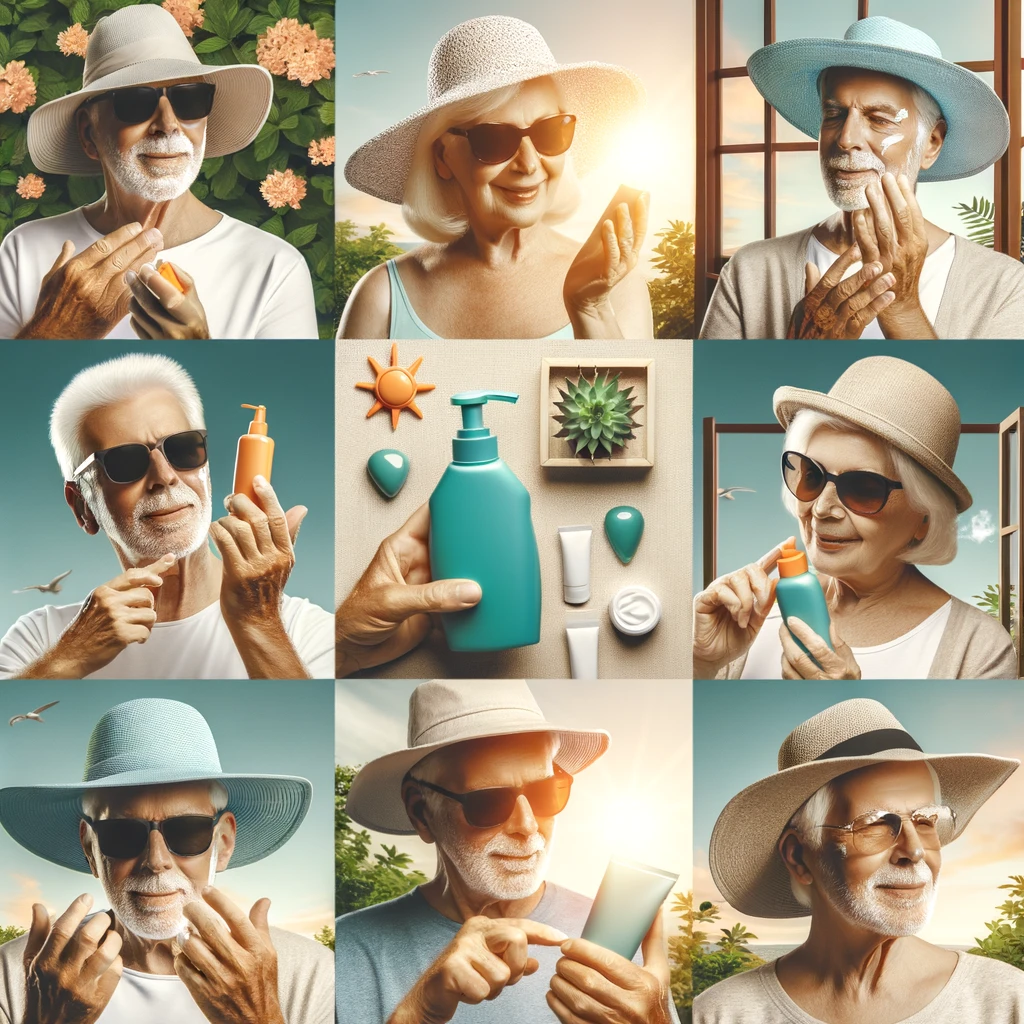
Shielding Skin from Harmful UV Rays
Sun protection remains a critical aspect of skin care at any age, but it’s especially important for seniors. Use broad-spectrum sunscreens with an SPF of 30 or higher to protect against UVA and UVB rays. Sunscreen should be applied liberally and regularly, even on cloudy days or when indoors near windows.
Addressing Common Skin Concerns
Age Spots and Wrinkle Treatment
Products containing retinoids, vitamin C, and alpha hydroxy acids can be effective in reducing age spots and smoothing wrinkles. These ingredients help to promote cell turnover and increase collagen production, giving skin a fresher, more youthful appearance.
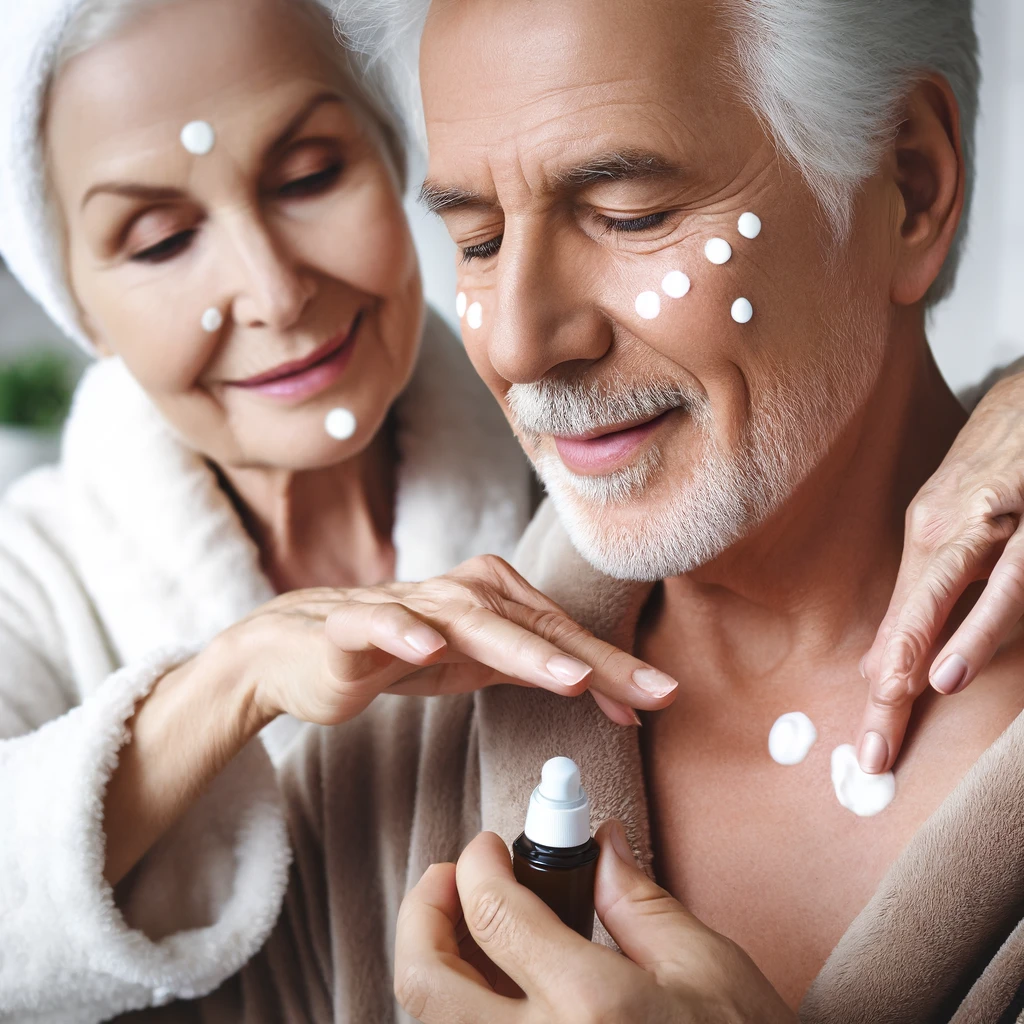
- Wrinkles and Fine Lines: Products with ingredients like retinoids and peptides can stimulate collagen production, reducing the appearance of wrinkles and fine lines.
- Age Spots and Uneven Skin Tone: Using products containing vitamin C, kojic acid, or alpha hydroxy acids can help lighten age spots and even out skin tone.
Advanced Skin Care Techniques
For seniors seeking more intensive skin care solutions, advanced techniques can be considered. These methods often involve professional treatments that target deeper layers of the skin for more dramatic results. Techniques such as laser therapy, chemical peels, and microdermabrasion are effective in reducing the appearance of deep wrinkles, sun damage, and age spots. These treatments should be performed by a qualified dermatologist and can be tailored to suit the specific skin types and concerns of older adults. Additionally, newer advancements like LED light therapy and collagen-inducing therapies offer non-invasive options to enhance skin’s appearance and health.
Professional Treatments
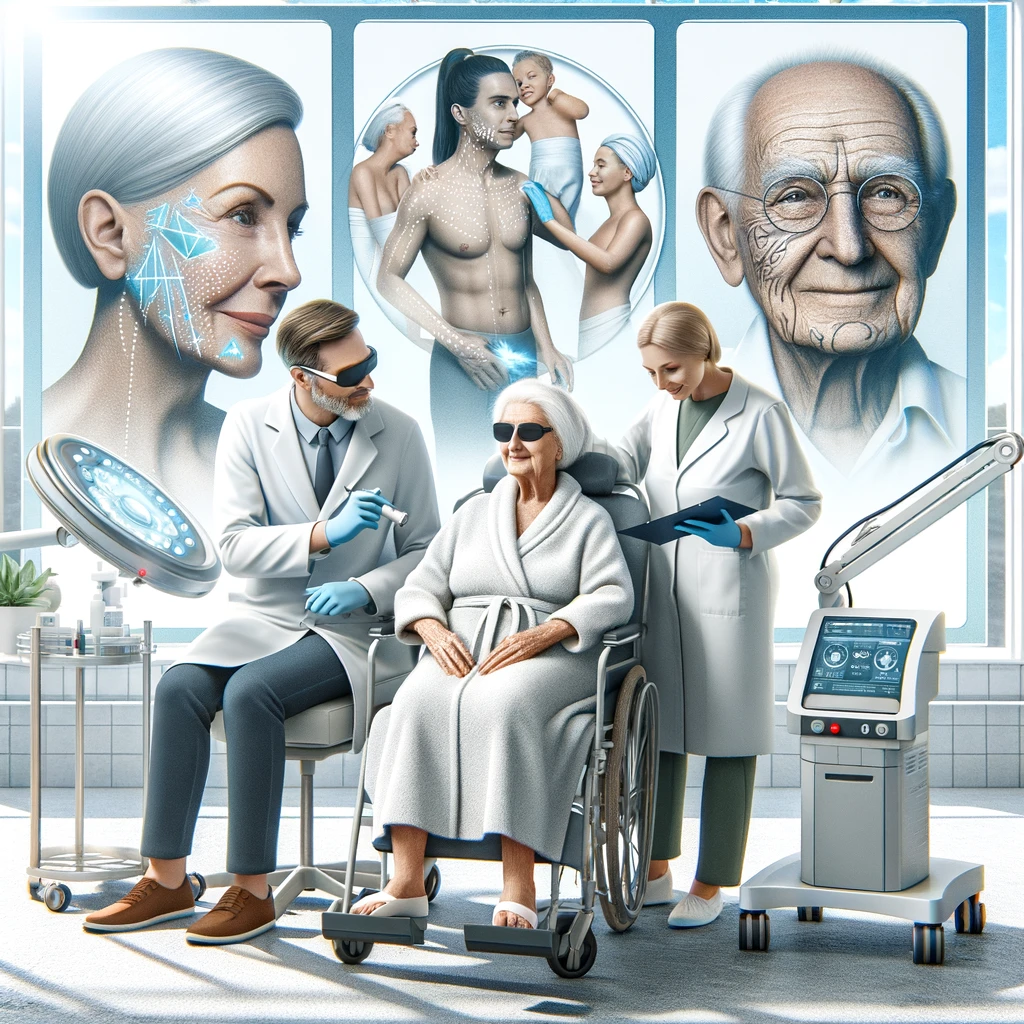
- Advanced Care Options: Treatments like laser therapy and microdermabrasion can address deeper skin issues more effectively than typical at-home care routines.
- Customized Treatments: Dermatologists can provide customized treatment plans that address the specific conditions and skin types of seniors, optimizing outcomes for healthier, more resilient skin.
Benefits of Seeing a Dermatologist

For seniors, consulting with a dermatologist can provide access to more advanced skin care treatments such as laser therapy, chemical peels, or microdermabrasion. These methods can improve skin texture and tone while addressing specific concerns like deep wrinkles or significant sun damage.
Natural Remedies and DIY Tips
Home-Made Solutions
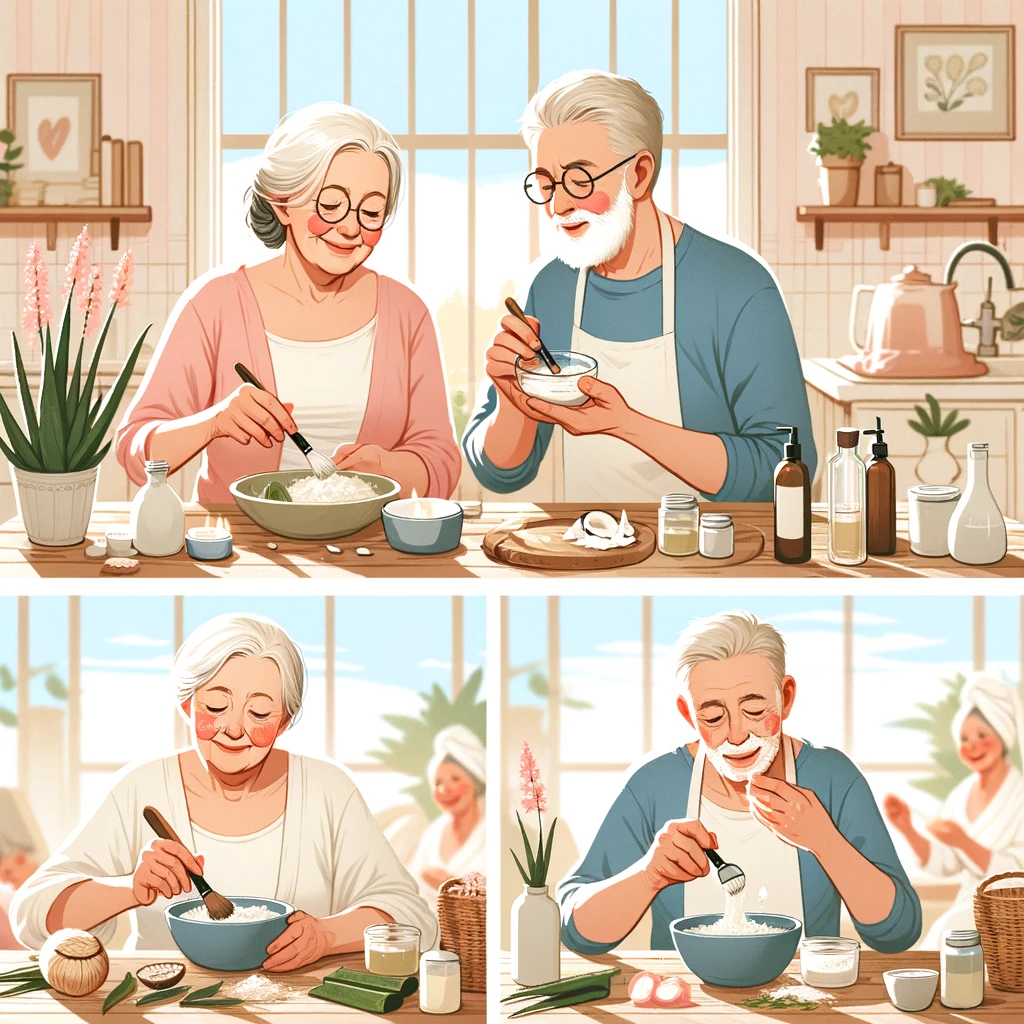
Incorporating natural ingredients like aloe vera, coconut oil, or oatmeal can soothe and nourish the skin effectively. Homemade masks and scrubs can provide gentle exfoliation and hydration without the harsh chemicals found in some commercial products.
Lifestyle Factors Influencing Skin Health
The health of our skin is profoundly impacted by lifestyle choices, especially as we age. Nutrition plays a critical role; a diet rich in antioxidants, vitamins A, C, and E, and omega-3 fatty acids can profoundly affect skin’s elasticity and moisture retention. Physical activity is another pivotal factor; regular exercise promotes better circulation, which helps to deliver more oxygen and nutrients to the skin, enhancing its appearance and healing capabilities. Additionally, managing stress through activities like yoga or meditation can prevent stress-induced inflammation and breakouts. For seniors, integrating these healthy lifestyle habits into daily routines can significantly improve skin health and contribute to overall well-being.
Nutrition and Skin

- Impact of Diet on Skin Health: A nutritious diet plays a fundamental role in maintaining skin health, particularly as we age. Foods rich in antioxidants, vitamins A, C, E, and omega-3 fatty acids support skin cell regeneration, enhance moisture retention, and protect against environmental damage.
- Specific Nutrient Benefits: Vitamins like C and E act as antioxidants that protect skin cells from UV exposure and environmental pollutants, while omega-3 fatty acids help maintain the skin’s lipid barrier, crucial in keeping the skin hydrated and plump.
Physical Activity and Skin Care
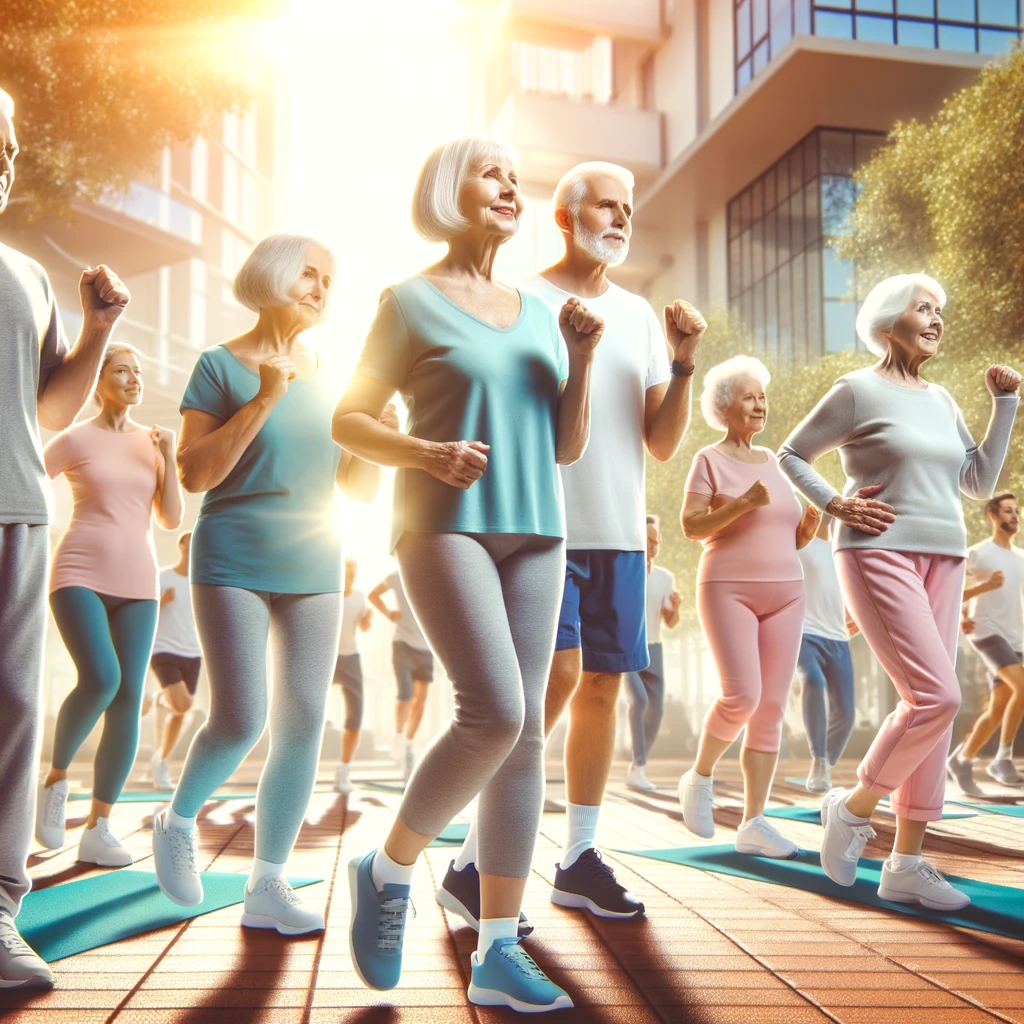
- Enhanced Circulation and Skin Health: Regular physical activity boosts circulation, increasing the flow of oxygen and nutrients to the skin, which helps nourish skin cells and promote a healthier complexion.
- Stress Reduction and Skin Appearance: Exercise also plays a critical role in reducing stress, which can decrease the occurrence of stress-related skin problems such as acne or eczema in seniors.
Conclusion
Effective senior skincare routines are essential for maintaining the health and appearance of skin as it ages. By understanding the specific needs of aging skin and implementing a routine that includes gentle cleansing, robust hydration, and diligent protection from the sun, seniors can significantly enhance their skin’s health and appearance. Remember, it’s never too late to start taking better care of your skin.
About the Author
Steve Allison is an experienced personal trainer and nutrition specialist for seniors, boasting a wealth of experience and certifications from the National Academy of Sports Medicine (NASM). His expertise helps seniors not only live healthier but look their best during their golden years. For more insights and expert guidance, visit TheFitnessHelpDesk.com.

